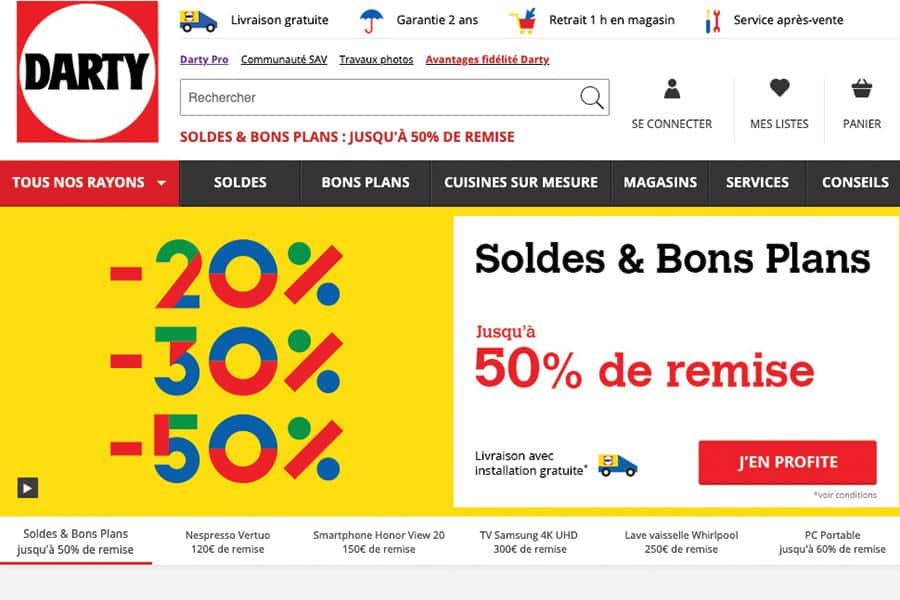They want it same day or within two hours, they expect it to be free, they will shop elsewhere if it is not – and if they don’t like the product, they expect the retailer to pick up the tab for returning the unwanted item. It’s fair to say that European online shoppers are increasingly demanding.
Meeting their needs is a challenge many are still trying to meet, often by encouraging shoppers with loyalty programmes to boost their spending. Darty, for example promises to deliver within two hours of the order being confirmed for a charge of €12.99, although despatch is free for shoppers who sign up for a ‘Partner Pass’. In the Netherlands, De Bijenkorf provides free weekday and evening delivery but a charge of €7.95 for weekend and ‘by appointment’ drops – unless once again customers become ‘ShopperPlus’ members.
As the growth of online shopping continues to outpace that of real world retailers, the pressures to provide efficient and cost-effective fulfilment services increases. A recent survey of online retailers and parcel delivery companies by IT company Zebra found that 87% of respondents planned to increase their warehouse space, while more than three-quarters (77%) admitted that they saw a pressing need to modernise their warehouses in order to remain competitive.
While driverless delivery vehicles and despatch by drone are concepts for the future, uses for artificial intelligence and robotics are currently hot topics among distribution companies, since the need to both expand operations to meet that growing demand and cut costs are paramount.
Implementations involving autonomous mobile robots (AMRs) and automated storing and retrieval systems (ASRS) are increasing, as is use of RFID to automate inventory management.
Companies such as Ocado are already pioneering fully automated warehouses with robotic picking devices – albeit a development delayed by the fire earlier this year at its flagship Andover site. Despite this unforeseeable setback, use of AMRs will certainly become more widespread in the near term.
Others are looking to partner with non-competing retailers, logistics specialists or parcel shops to cut costs. Earlier this year, for example, fashion retailer Zalando handed control of its East German distribution centre to a logistics services specialist because it was unable to automate the site to cut costs.
It has also contracted third parties to handle returns in Germany rather than manage these in-house. Meanwhile, in Italy, the company has signed deals with Poste Italiane and Punto Poste for both collection and drop-off returns.
While free delivery remains an important marketing tactic to persuade shoppers, the margin erosion it can cause becomes unsustainable as the proportion of sales moving online grows.
Technology will therefore play a vital role in cutting costs in order to maintain the offers and ensure that those fickle customers stay loyal.






